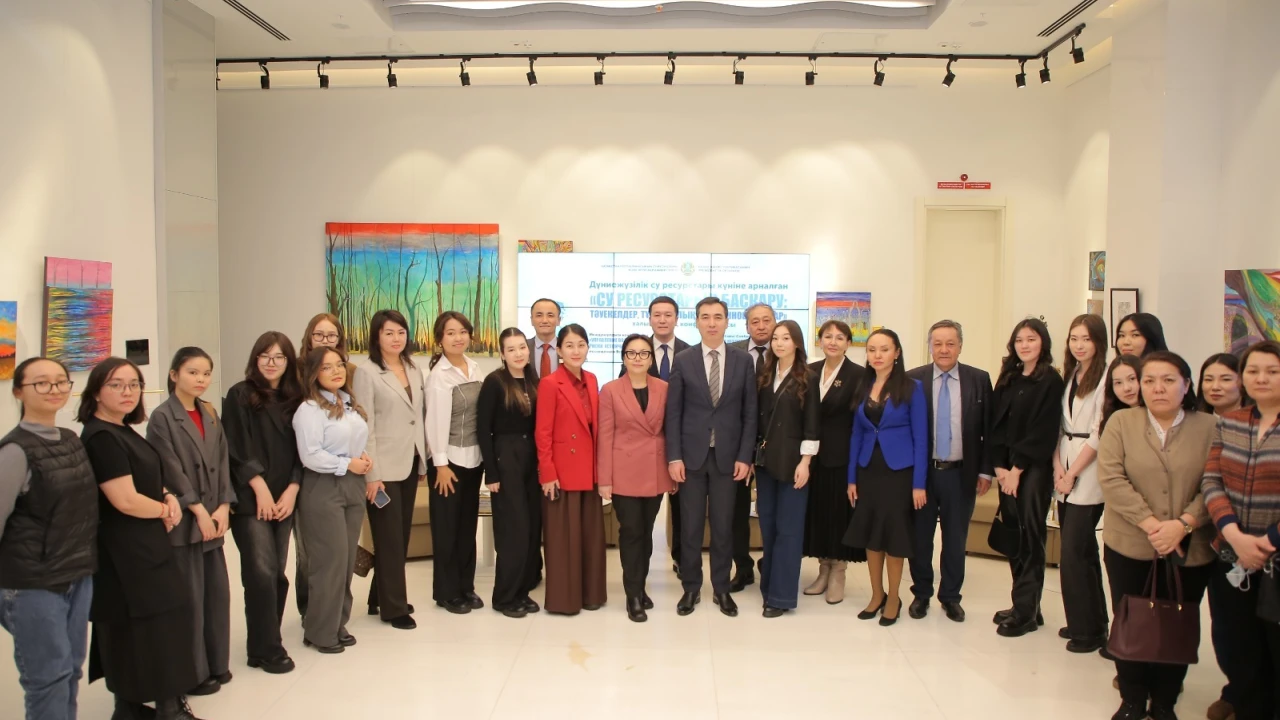
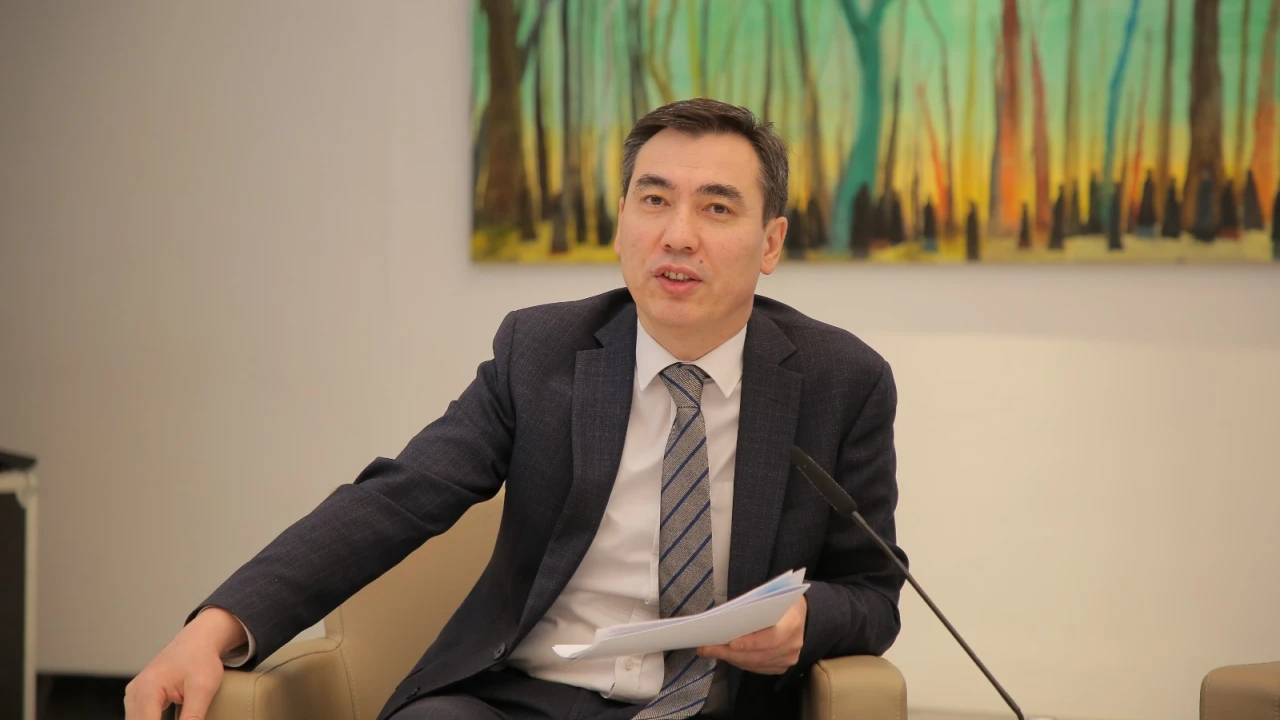
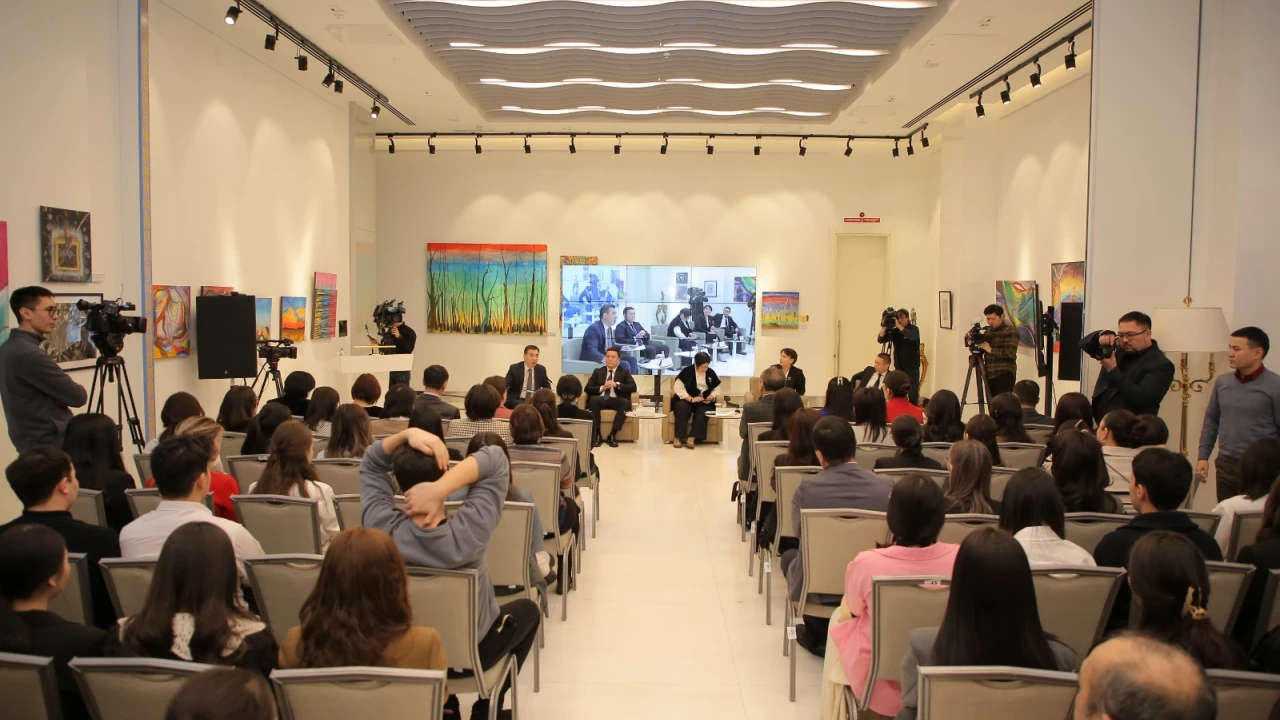
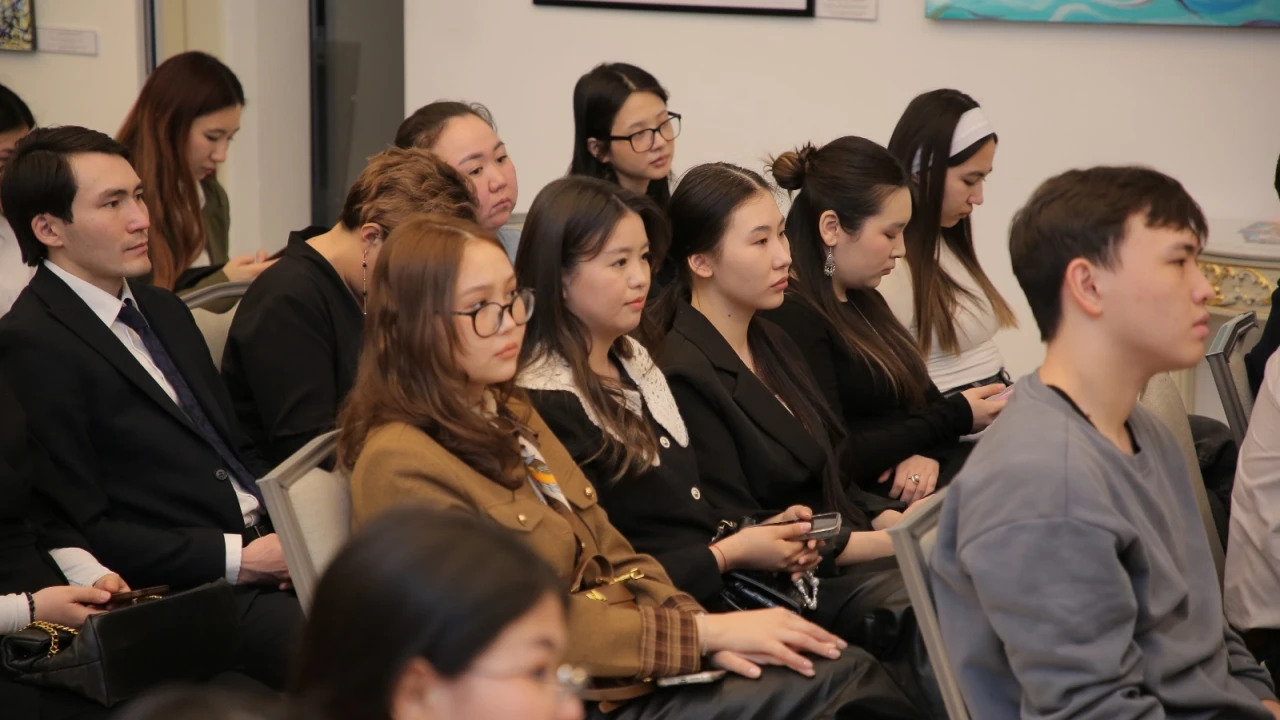
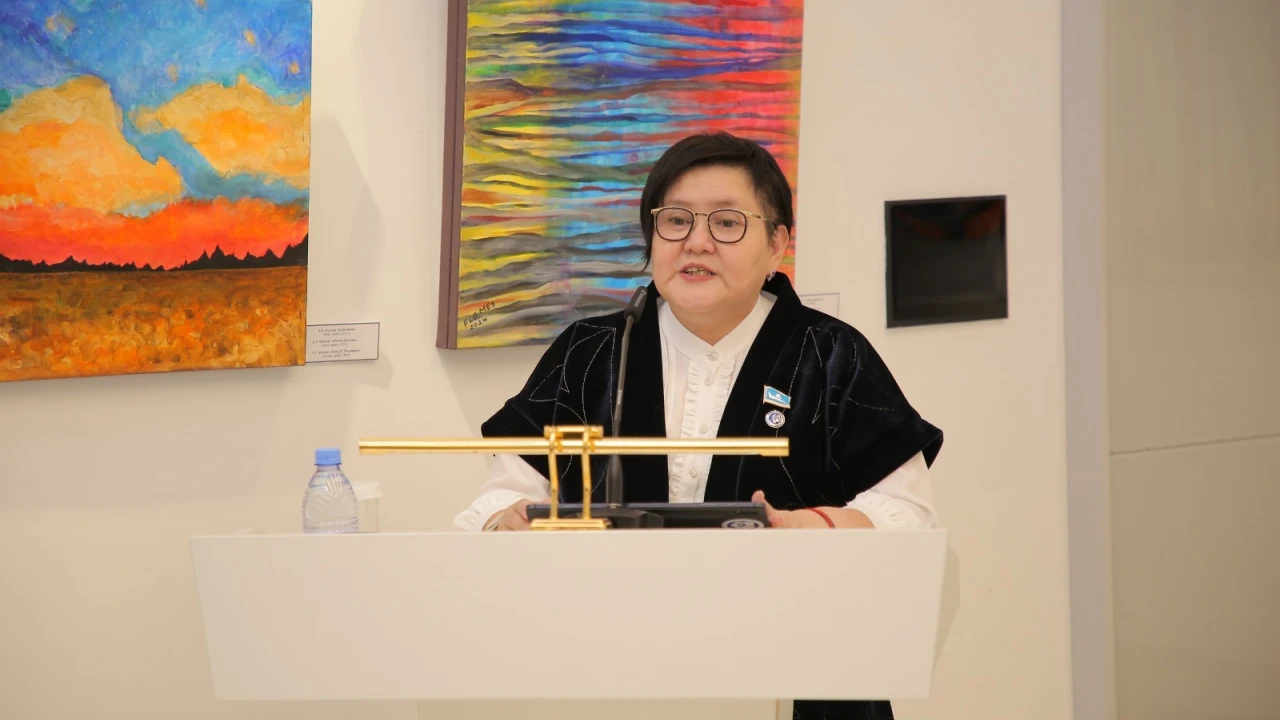
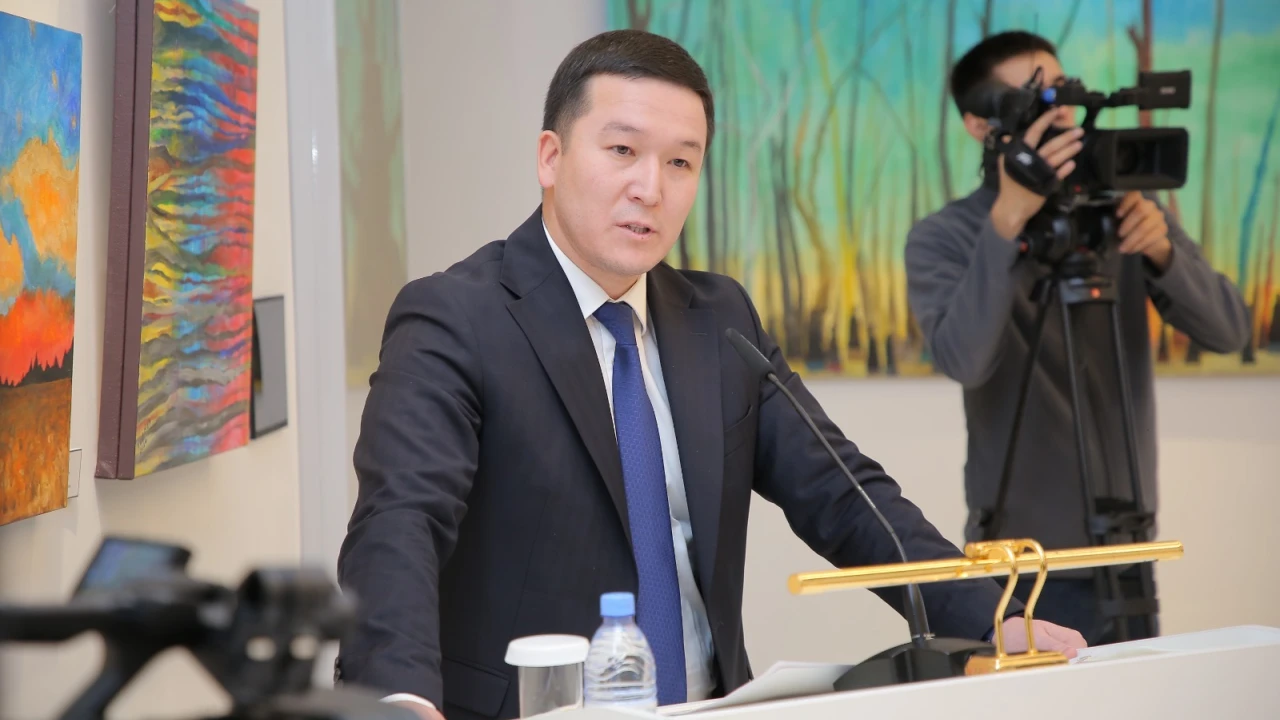

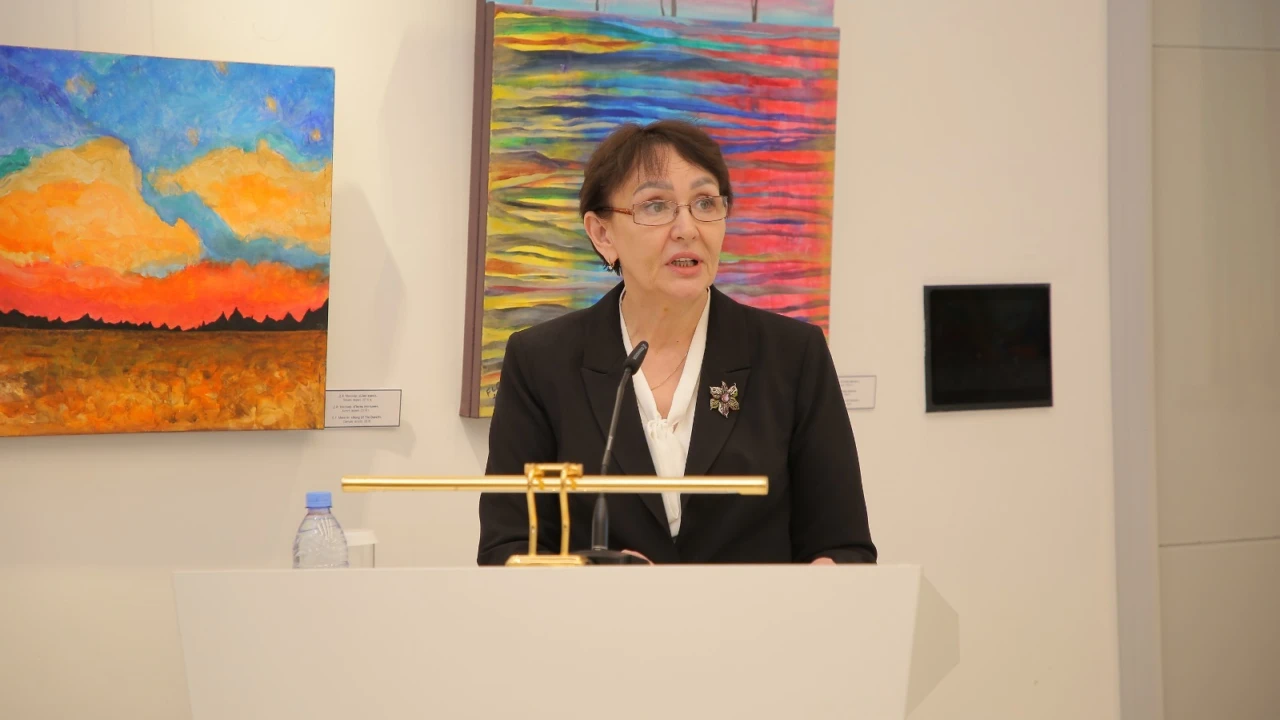
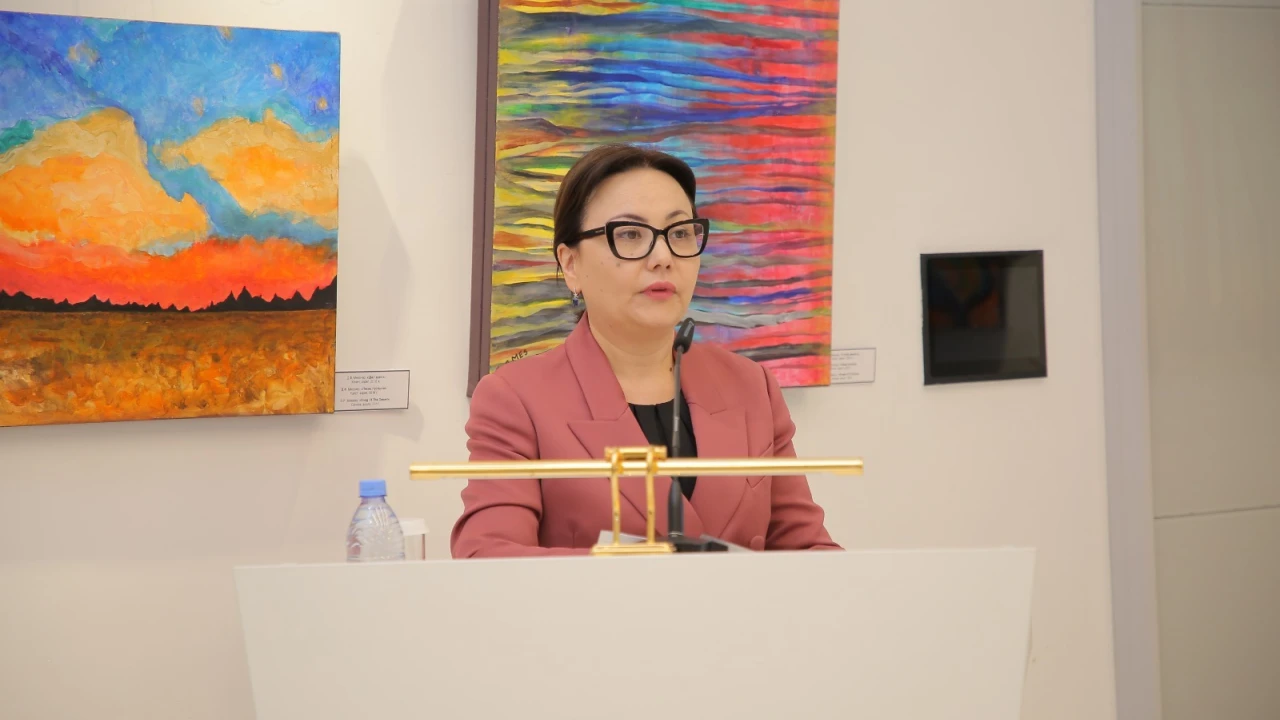
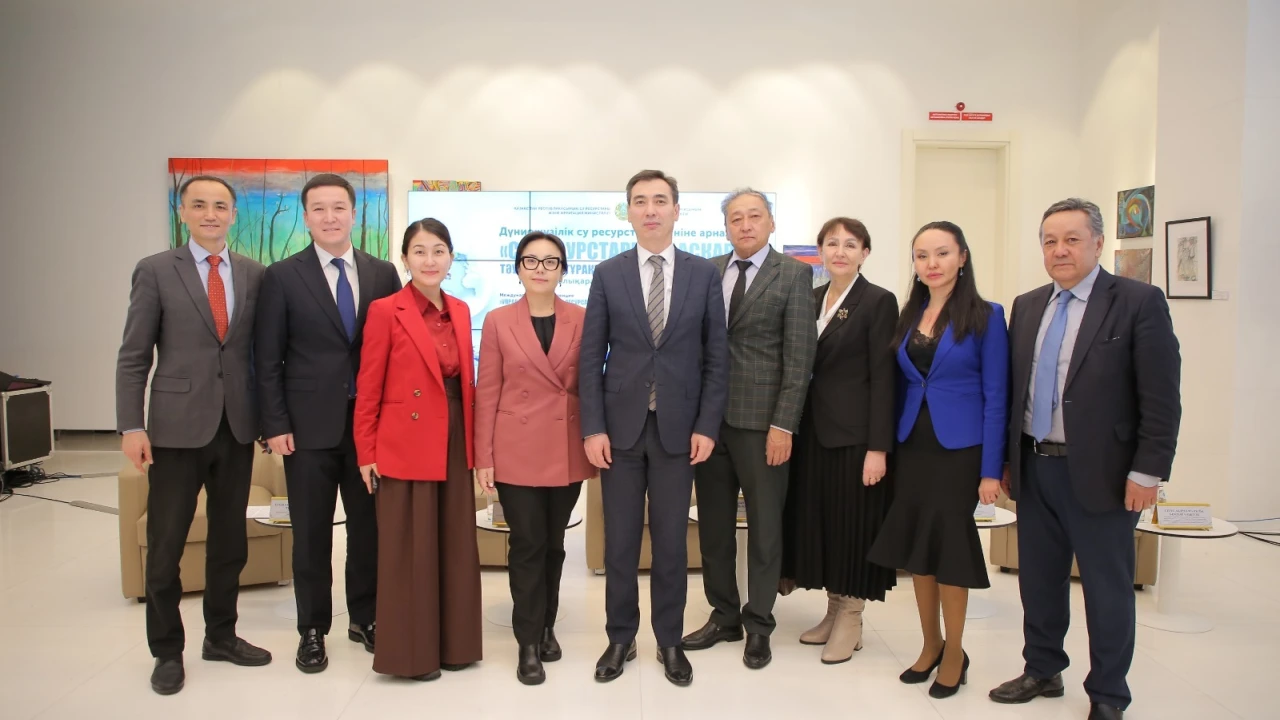
An international conference titled "Conservation of Water Resources and Sustainable Management of Water Systems: Kazakhstan's Role in Global Initiatives" was held at the Presidential Center of the Republic of Kazakhstan. The conference was dedicated to implementing the national campaign Taza Kazakhstan and World Water Day. The Presidential Center of Kazakhstan organized this event in cooperation with the Ministry of Water Resources and Irrigation of Kazakhstan.
Approximately 80 participants attended the event, including government and public figures, heads and representatives of international organizations, scientists, and experts in the fields of water resources and ecology.
"Water usage and water security are global challenges that are increasingly urgent in the face of climate change and the rapid growth of the world’s population. The total amount of water on the planet is 96.5% ocean water, while freshwater accounts for 3.5%, with groundwater accounting for 1.7% and surface water, such as rivers and lakes, barely reaching 0.02%. Currently, the total global water consumption is around 4.3 trillion cubic meters of water per year. Kazakhstan, which is located in an arid climate zone, is struggling with water shortages, further aggravated by the cross-border nature of most of its major water sources. The country is also suffering from significant water pollution and ecosystem degradation, along with irrational water consumption in agriculture, industry, and daily life, making water supply a pressing concern. Our country, ranked 66th in terms of water resources out of 179 countries and, in addition to that, has the above-mentioned set of serious problems, with 11th place in terms of the amount of water consumed per capita. Today, the task of effective and rational water resources management is vital for Kazakhstan," said Bakytzhan Temirbolat, Director of the Presidential Centre of Kazakhstan.
"Today, more than ever, the world is facing challenges related to the preservation and efficient use of water resources: climate change, population growth, pollution of water bodies, and instability in regions with water scarcity. In response to these modern challenges, Kazakhstan is undergoing a large-scale transformation of its water management sector, one of the cornerstones of which is the construction and modernization of water infrastructure. In the medium term, the construction of 42 new reservoirs, the reconstruction of 37 hydraulic structures, and the construction and reconstruction of about 14,000 kilometers of irrigation canals are planned. At present, a new Water Code has been developed, and the Concept of Development of the Water Resources Management System of Kazakhstan for 2024-2030 and the Comprehensive Plan for the Development of the Water Industry of the Country for 2024-2028 have been approved. Kazakhstan strives to find balanced and sustainable solutions using the best international experience, innovative approaches and technologies’, Arsen Zhakanbayev, Chairman of the Committee for Water Resources, delivered the welcome message on behalf of the Minister of Water Resources and Irrigation of Kazakhstan.
It is worth noting that the conference became a platform for discussing relevant issues and key challenges in the field of water resources that Kazakhstan is facing, finding solutions for the conservation of water resources, and strengthening international cooperation on the sustainability of hydrological reserves.
"The issue of water resources in Kazakhstan is becoming increasingly urgent, affecting the economy, agriculture, public health, and ecosystems. The main challenges are freshwater scarcity, pollution of water bodies, ineffective management, and conflicts over resources between industry and agriculture. Addressing these problems requires the active involvement of all parties: the government, businesses, and civil society. Effective water resource management necessitates strengthening partnerships between the state and civil society, engaging youth, expanding educational programs, and increasing funding for environmental projects. A comprehensive approach and cooperation will enable sustainable and fair distribution of water resources in the country," shared Azhar Sagandykova, a Deputy of the Mazhilis of the Parliament of Kazakhstan.
In turn, Professor Sumer Vakur from the Faculty of International Relations at Selcuk University (Konya) elaborated on global approaches in Turkey's transboundary water policy. Currently, the goal of Turkey's water policy is to achieve several fundamental objectives, such as increasing agricultural production and ensuring food security, meeting the growing demand for drinking water in rural and urban areas, reducing dependency on imported energy sources, and decreasing regional economic and social disparities in the country. Water resources have become a key issue in Turkey's foreign policy. The basins of transboundary rivers cover a total area of 256,000 square kilometers, which accounts for one-third of Turkey's total land area. Today, transboundary rivers represent 30% of Turkey’s freshwater resources and play a crucial role in the country's development and its overall water supply."
Also during the conference, speeches were made by the acting Director of the Department of Environmental Policy of the Ministry of Ecology and Natural Resources of the Republic of Kazakhstan Natalya Dauletyarova, Deputy Chairman of the Executive Committee of the International Fund for Saving the Aral Sea, authorized representative of Kazakhstan in the Executive Committee of the International Fund for Saving the Aral Sea Serik Bekmaganbetov, expert of the Public Chamber under the Mazhilis of the Parliament of the Republic of Kazakhstan Aizhan Skakova, head of the scientific research environmental center "Monitoring" of Toraigyrov University Kanat Akhmetov, rector of the Kazakh National University of Water Management and Irrigation Kamshat Tusupova, director of the international scientific complex "Astana", vice-president for international cooperation and student affairs of Astana International University Kairat Abdrakhmanov, head of the laboratory of the Research Institute of Irrigation and Water Problems (Republic of Uzbekistan) Khusen Gafforov, head of the project "Association of Central Asian Professionals" Zhaniya Khaibullina and head of the media projects department of the Kazakhstan Institute for Strategic Studies under the President of the Republic of Kazakhstan Zhanara Tulindinova.
Based on the results of the discussion, proposals were developed that will be sent to authorized government agencies and interested specialized organizations.



